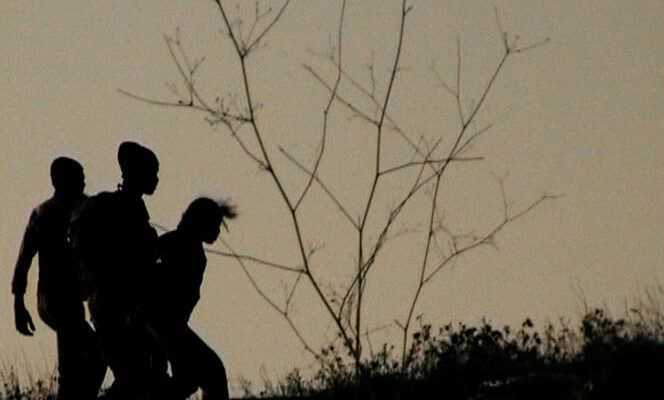Based in Marseille, the Aflam organization, which strives to promote Arab cinemas in France, is in turn going online for the eighth edition of its annual festival, the Rencontres internationales de cinema, which takes place from March 26 to April 4. On the menu, three major themes: traces of the Arab revolutions, a look at the former colonies, current affairs in Palestine. We will find in the latter a punchy film (broadcast on March 29 and 30), subject to debate no doubt, but of an irrefutable force of testimony. Entitled Of Land and Bread, Produced in 2019, coordinated by Ehab Tarabieh, already shown in various festivals around the world, this film brings together views filmed by Palestinians from the West Bank to whom the Israeli NGO B’Tselem has entrusted cameras.
Founded in 1989, this association has been denouncing violations of human rights in the occupied territories for thirty years. Since 2007, she has distributed these cameras to Palestinian volunteers. These snippets of films – because the filmmaker is often forced to stop taking pictures – regularly feed the association’s website. This time, these heterogeneous shots captured on the fly, rarely posed, more often shaken, are brought together to form a film, fragmented like so many shards, roughly stripped, with no other ambition than that of testimony.
Demeaning scenes
The whole, failing to reveal a situation that has endured in the knowledge and sight of all for many years, gives rise to a deep feeling of unease. At the height of the hatred and the desire to humiliate that emerge from these images. A man, cultivating a modest piece of land, thus sees a settler tumbling down in his pious man’s attire, who claims half of his plot by explaining to him that he is not at home, that he cultivates the land. Israel and that at the coming of the Messiah, the Palestinians will become slaves to the Jews, provided that the latter are willing to do so. All this openly, facing the camera, and accompanied by silent threats (“There, I spoke to you nicely”).
The whole, failing to reveal a situation that has persisted in the knowledge and sight of all for many years, gives rise to a deep feeling of unease.
This scene in all respects insane – which testifies both to the degree of exaltation and impunity of the fundamentalists and to the cynicism of the government which instrumentalizes them – sets the tone of the film. Other scenes, no less degrading, will follow. A woman at her window, stoned by settlers returning from prayer, sexually and religiously insulted, threatened with death. Soldiers on the job to beat up the population, break a little girl’s bicycle, scare children in the middle of the night. A funeral procession drowned under the jets of water from a police vehicle. A fanatic settler, not matching three words of Hebrew, hanging on barbed wire on the roof of a Palestinian house in an attempt to tear off the flag and grumbling to the owner that his house does not belong to him. A family of plump settlers, in disguise, and parading in the streets on the occasion of Purim (a festival which joyfully celebrates the rescue of the Jews from extermination) while exciting a wolfdog on a leash to threaten Palestinians crossed on the way. Terrifying image that this one, striking our dumbfounded gaze like a farce replica of the persecution of the Jews under the Nazi boot.
You have 36.61% of this article to read. The rest is for subscribers only.
